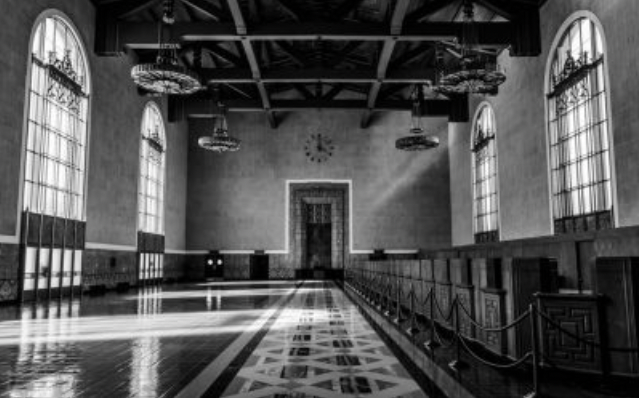When Faith Meets the Workplace: Understanding Your Rights with an Unpaid Wages Lawyer in Los Angeles
Have you been told your religious practices don’t fit with company policy? If your employer denied your request to wear religious attire, take time off for religious observances, or modify your work schedule for prayer, you’re facing a situation that affects thousands of California workers each year. The frustration of choosing between your faith and your paycheck is real, and many employees don’t realize they have strong legal protections under both federal and state law. Understanding these rights becomes even more critical when employers retaliate by cutting hours or withholding pay, which is when an unpaid wages lawyer in Los Angeles can help protect both your religious freedom and your financial security.
💡 Pro Tip: Document your accommodation request in writing, including the specific religious practice, how it relates to your sincerely held beliefs, and proposed solutions that wouldn’t burden your employer.
Don’t let a denied religious accommodation put a damper on your rights or your income. Reach out to MSD Lawyers today for guidance on regaining your peace of mind and financial stability. Connect with us at 213-401-0823 or contact us for a consultation and take the first step toward resolution.
California’s Robust Protections for Religious Freedom in the Workplace
California enacted civil rights laws in 1959 to prohibit discrimination in employment and housing based on a person’s race, religion, national origin and ancestry. Today, the Fair Employment and Housing Act (FEHA) applies to employers of 5 or more employees and prohibits discrimination against job applicants and employees because of a protected category, including religion. The law protects not only people who belong to traditional, organized religions, such as Buddhism, Christianity, Hinduism, Islam, and Judaism, but also others who have sincerely held religious, ethical or moral beliefs. Even if you recently adopted your faith or don’t follow every tenet perfectly, your religious practice may be sincerely held by an individual even if newly adopted, not consistently observed, or different from the commonly followed tenets of the individual’s religion.
Title VII defines "religion" very broadly to include traditional organized religions as well as religious beliefs that are new, uncommon, not part of a formal church or sect, or only held by a small number of people. The presence of a deity or deities is not necessary for a religion to receive protection under Title VII. Religious beliefs can include unique beliefs held by a few or even one individual; however, mere personal preferences are not religious beliefs. When employers deny accommodations and then retaliate through wage violations, consulting an unpaid wages lawyer in Los Angeles helps address both the discrimination and the financial harm.
💡 Pro Tip: Keep detailed records of any changes to your pay, hours, or work conditions after requesting religious accommodation – this documentation proves invaluable if retaliation occurs.
The Path from Accommodation Request to Resolution
Understanding the timeline for addressing denied religious accommodations helps you protect your rights effectively. In general, a complaint of employment discrimination must be filed with CRD within three years from the date an alleged discriminatory act occurred. However, acting quickly preserves evidence and prevents ongoing harm to your career and finances. Here’s what to expect when pursuing your workplace religious accommodation rights:
- Initial Request (Day 1-7): Submit your accommodation request in writing, explaining your religious belief and proposed accommodation
- Employer Response (Days 7-30): Employers should engage in an interactive process to explore accommodation options
- Internal Appeals (Days 30-60): If denied, appeal through company HR channels while documenting all interactions
- Agency Filing (Days 60-180): File with California Civil Rights Department if internal resolution fails
- Investigation Period (6-12 months): CRD investigates while you may simultaneously pursue private legal action
- Resolution Options (12-24 months): Cases may resolve through mediation, settlement, or litigation if necessary
💡 Pro Tip: The FEHA applies to California workers regardless of their citizenship or immigration status, and CRD does not inquire about citizenship or immigration status when investigating claims.
How MSD Lawyers Fights for Your Religious Rights and Fair Compensation
When employers deny reasonable religious accommodations, they often compound the violation by retaliating against employees who assert their rights. MSD Lawyers understands that workplace religious discrimination frequently leads to reduced hours, demotions, or even termination – all resulting in lost wages. Our team examines not just the accommodation denial but also any subsequent wage and hour violations. The law requires employers to reasonably accommodate an employee’s religious beliefs or practices unless doing so would cause a burden that is substantial in the overall context of the employer’s business. The Supreme Court in Groff v. DeJoy (2023) clarified that undue hardship is shown when a burden is substantial in the overall context of an employer’s business, taking into account all relevant factors including the particular accommodation at issue and its practical impact in light of the nature, size and operating cost of the employer.
As your unpaid wages lawyer in Los Angeles, we pursue comprehensive remedies including back pay, reinstatement, and compensation for emotional distress caused by discrimination. We work with employment law experts to demonstrate how simple accommodations like flexible scheduling, voluntary shift substitutions or swaps, job reassignments, and modifications to workplace policies or practices could have resolved the situation without undue hardship.
💡 Pro Tip: California employment discrimination laws provide stronger protections than federal law in many cases – always consult with local counsel familiar with state-specific remedies.
Common Religious Accommodations and Employer Obligations
Examples of common religious accommodations include exceptions to dress and grooming codes, such as allowing a Pentecostal Christian woman who does not wear pants, a Muslim woman who wears a hijab, or a Jewish man who wears a yarmulke. These accommodations often require minimal effort from employers yet mean everything to employees practicing their faith. Some practices are religious for one person but not religious for another person, such as not working on Saturday or Sunday. One person may not work on Saturday for religious reasons; another person may not work on Saturday for family reasons. This distinction matters because only religious practices receive legal protection.
Employers must take each request seriously and cannot make assumptions about what constitutes a "real" religious belief. Title VII also prohibits workplace or job segregation based on religion, such as assigning an employee to a non-customer contact position because of actual or feared customer preference. When companies violate these principles and then punish employees financially, an unpaid wages lawyer in Los Angeles can help recover both lost income and damages for discrimination.
Workplace Religious Accommodation in Practice
Real accommodation success happens through dialogue and creativity. For instance, a retail worker needing Friday afternoon prayers might swap shifts with colleagues, or a hospital employee whose faith prohibits working on certain holidays could work alternative dates. Different types of religious discrimination fact patterns include treating applicants or employees differently based on religious beliefs, taking adverse action motivated by a desire to avoid accommodating a religious practice, and denying a needed reasonable accommodation if it will not impose an undue hardship. Understanding these patterns helps employees recognize violations and seek appropriate remedies.
💡 Pro Tip: Propose multiple accommodation options to show flexibility – courts look favorably on employees who work collaboratively toward solutions.
Retaliation and Wage Violations Following Accommodation Requests
Unfortunately, some employers respond to religious accommodation requests with subtle or overt retaliation. They might suddenly find "performance issues," reduce hours without explanation, or delay paychecks. Harassment is prohibited in all California workplaces, even those with only one employee or independent contractor on staff. This broad protection means that even small businesses cannot create hostile environments for employees who request religious accommodations. When retaliation affects your paycheck, working with an unpaid wages lawyer in Los Angeles ensures you recover every dollar owed while addressing the underlying discrimination.
Recognizing Retaliatory Wage Practices
Watch for red flags like sudden schedule changes that reduce your hours, unexplained deductions from paychecks, denial of previously approved overtime, or reclassification from employee to contractor status. CDFA’s mission includes cultivating a culture of excellence, respect, and professionalism, and a work environment free from unlawful discrimination, harassment, and retaliation. While this represents one agency’s commitment, it reflects broader California values that all employers should embrace. Document any changes to your compensation or working conditions that occur after requesting religious accommodation.
💡 Pro Tip: California law requires employers of 5 or more employees to provide sexual harassment training to supervisory and nonsupervisory employees, which should include training on religious discrimination and accommodation requirements.
Frequently Asked Questions
Understanding Your Religious Accommodation Rights
Many employees hesitate to request accommodations, fearing job loss or wondering if their beliefs qualify for protection. These concerns are valid but shouldn’t prevent you from exercising your rights. Individuals who do not practice any religion are also protected from discrimination on the basis of religion or lack thereof, showing the law’s broad protective scope.
💡 Pro Tip: Free consultations with employment attorneys can clarify your rights without commitment – take advantage of these to understand your options.
Taking Action When Accommodations Are Denied
The path forward after accommodation denial depends on your specific situation, employer size, and the nature of the requested accommodation. Understanding the process helps you make informed decisions about protecting your rights and livelihood.
💡 Pro Tip: Many religious accommodation disputes resolve through negotiation without formal litigation – experienced counsel can often achieve positive outcomes through strategic communication.
1. What if my religious beliefs recently changed – will my employer take my accommodation request seriously?
Yes, the law protects newly adopted religious beliefs just as strongly as lifelong faith traditions. A religious practice may be sincerely held by an individual even if newly adopted, not consistently observed, or different from the commonly followed tenets of the individual’s religion. Employers cannot dismiss your request simply because your beliefs are recent or evolving.
2. Can my employer refuse accommodation by claiming customer preferences?
No, customer preference is not a valid reason to deny religious accommodation. Title VII specifically prohibits workplace or job segregation based on religion, including religious garb and grooming practices. Your employer cannot hide you from customers or change your position due to your religious expression.
3. What constitutes "undue hardship" for employers under the new Supreme Court standard?
The Supreme Court held that "undue hardship is shown when a burden is substantial in the overall context of an employer’s business," taking into account all relevant factors including the particular accommodations at issue and their practical impact in light of the nature, size and operating cost of an employer. This is a higher standard than before, making it harder for employers to deny accommodations.
4. How long do I have to file a complaint if my religious accommodation was denied?
In California, you generally have three years from the date an alleged discriminatory act occurred to file with the Civil Rights Department. However, pursuing internal remedies and documenting ongoing violations can extend this timeline. Consult with an attorney promptly to preserve all possible claims.
5. What if my employer claims my requested accommodation conflicts with business operations?
Employers must prove substantial burden in their overall business context, not mere inconvenience. Common accommodations like flexible scheduling, voluntary shift substitutions, or dress code exceptions rarely meet this threshold. An experienced unpaid wages lawyer in Los Angeles can evaluate whether your employer’s claimed hardship is legitimate or pretextual.
Work with a Trusted Employment Law Lawyer
Religious discrimination cases require attorneys who understand both employment law complexities and the personal nature of faith-based claims. The right legal representation respects your beliefs while aggressively pursuing justice for discrimination and any resulting wage violations. Look for attorneys with proven track records in religious accommodation cases and deep knowledge of California’s protective employment laws. Whether you work in downtown Los Angeles or the surrounding areas, experienced counsel can guide you through the process of securing both your religious rights and fair compensation.
Don’t let your rights or livelihood hang in the balance due to denied religious accommodations. Reach out to MSD Lawyers for a clear path forward—where your faith and financial security go hand in hand. Get the ball rolling today at 213-401-0823 or contact us and step confidently toward resolution.













